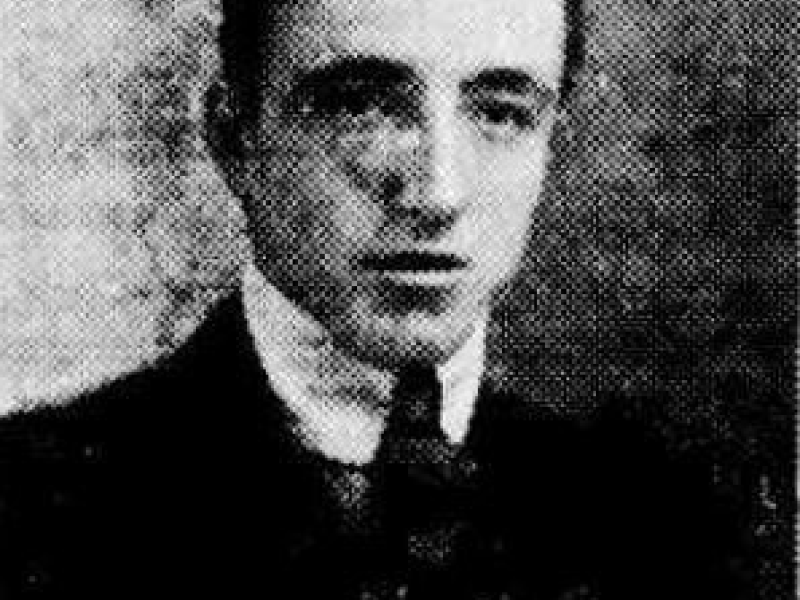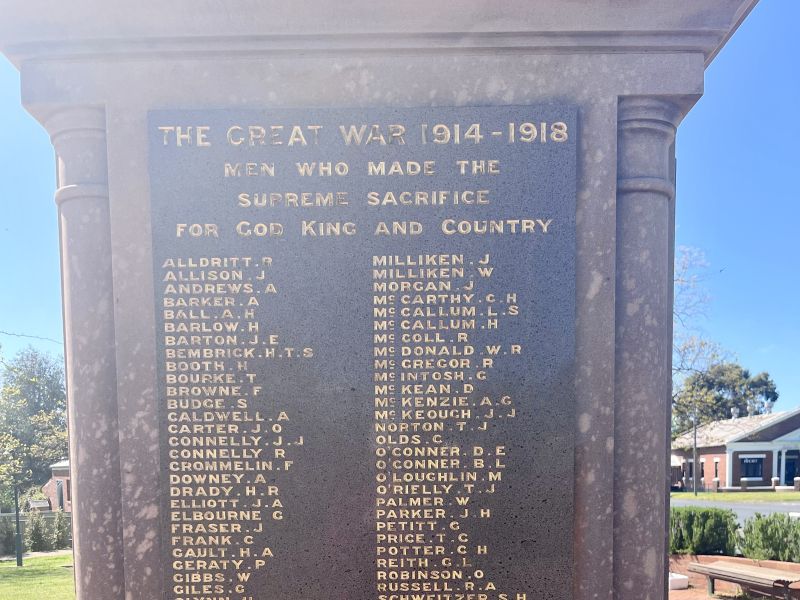Private Stanley Schweitzer, 17th Battalion, AIF
Stanley Grenfell Schweitzer was born in 1890, one of 11 children of Charles and Mary Schweitzer of Grenfell, New South Wales. Stanley’s father was French, and his mother German. Their respective families had immigrated to NSW during the gold rush in the 1850s. Young Stanley grew up in Grenfell, went to the local school, and completed an apprenticeship at C E Wales Plumbers & Co.
Schweitzer enlisted in the Australian Imperial Force in Sydney in January 1915. After four months training in Liverpool, he embarked for the training camps in Egypt as an original member of the 17th Battalion.
By then, Australian troops had landed on Gallipoli as part of a wider effort to gain control of the Dardanelles and knock Ottoman Turkey out of the war. As part of the newly-raised 2nd Division, the 17th Battalion did not land on Gallipoli on 25 April 1915 but four months later, during the final stages of the August Offensive.
The 17th was sent to the northern defences at Anzac where it was attached to the 4th Brigade, holding the line in the approaches to the Sari Bair Range. Further to the north, the British had landed at Suvla and were attempting to gain ground to link up with the Anzac defences.
British and Australian troops made two major attacks against the Turks occupying Hill 60 – a position that commanded the low ground occupied by the allied forces.
Before dawn on 27 August, the 17th Battalion participated in costly and unsuccessful attack resulting in over 1,000 British and Australian casualties. The fighting in the warren of Turkish trenches was fierce and confusing, and became mired down in a vicious bomb duel until the Australians were ejected from the position.
Stanley Schweitzer was among the casualties. Listed as missing in the days after the fighting at Hill 60, he was later listed as killed action.
Word of Stanley Schweitzer’s last moment reached his family in Grenfell later in 1916, when Major Peck wrote to his father from the training camps in England:
“I have an officer with me who saw young Stan Schweitzer die. You can tell his pals, as an absolute fact, that he was the first out over the parapet, and died a grand death, with a bullet through the head. His officer said he was always a gallant kid, and withal cheerful.”
Aged 24 at the time of his death, Schweitzer’s remains were never recovered from the Gallipoli battlefield. Today he is among the 4,900 Australian and New Zealand soldiers who died on Gallipoli and have no known grave who are commemorated on the Lone Pine Memorial.
Aaron Pegram, Historian, Military History Unit
- Australian War Memorial https://www.awm.gov.au/collection/AWM2017.1.216

 Australian War Memorial
Australian War Memorial